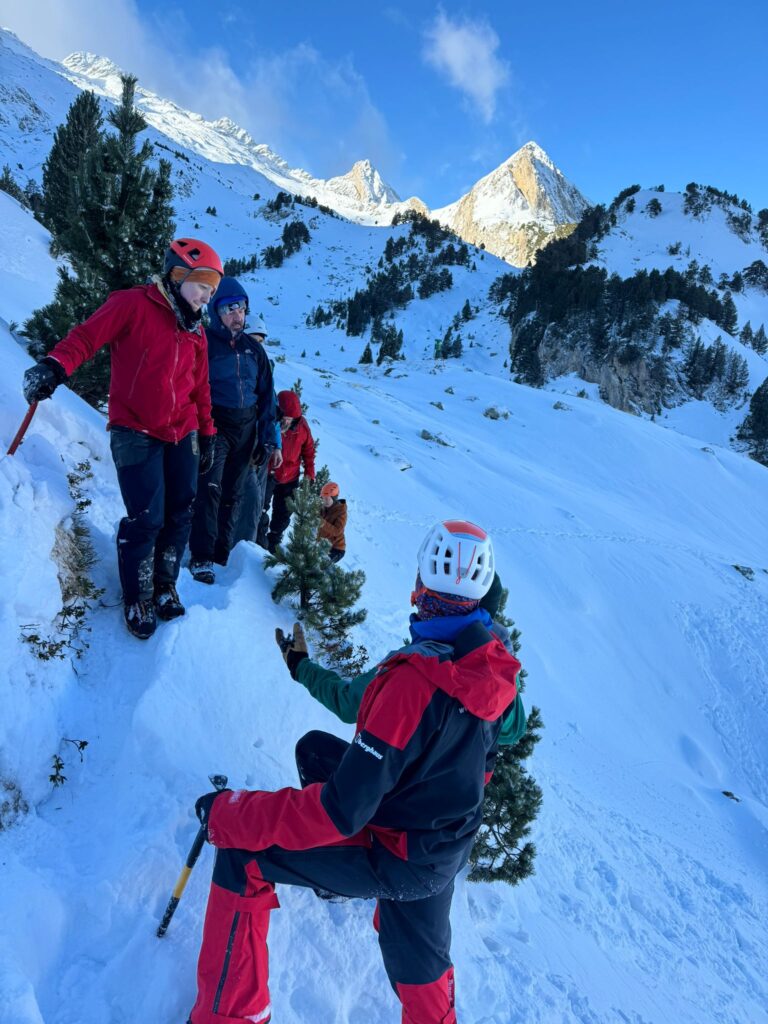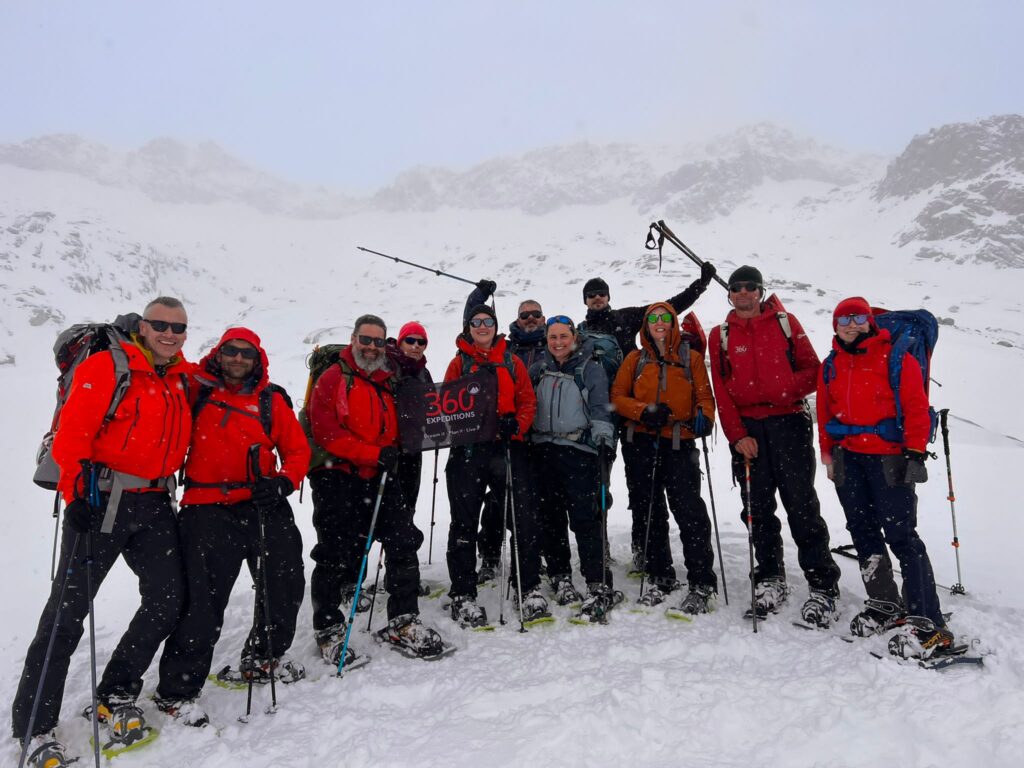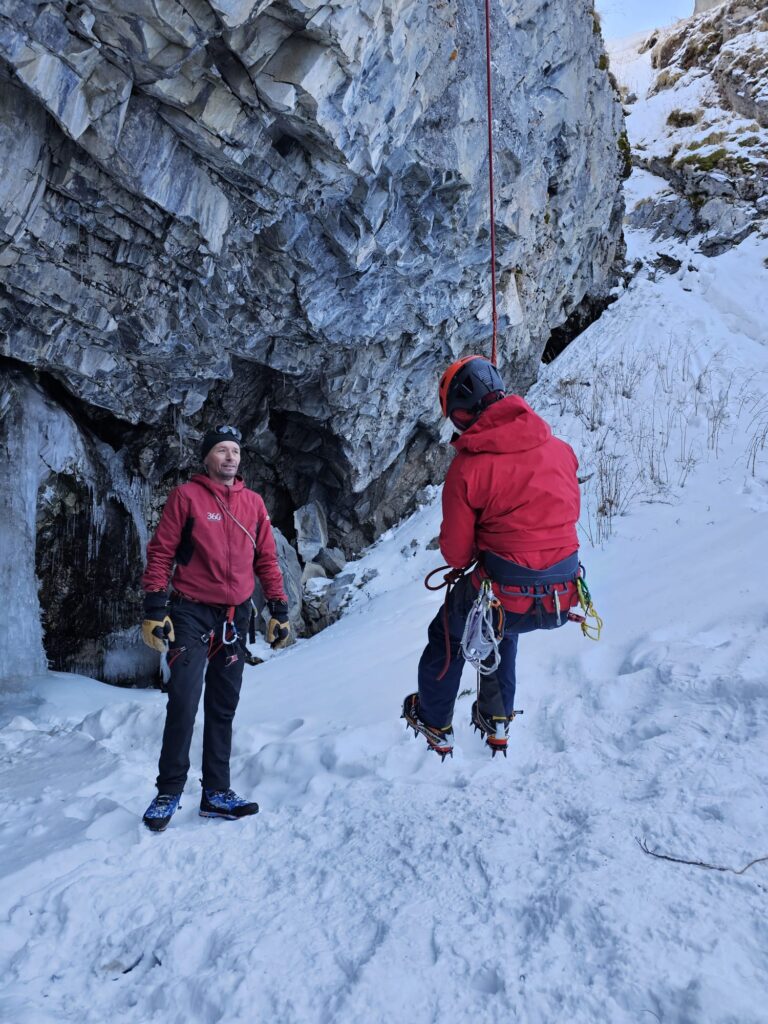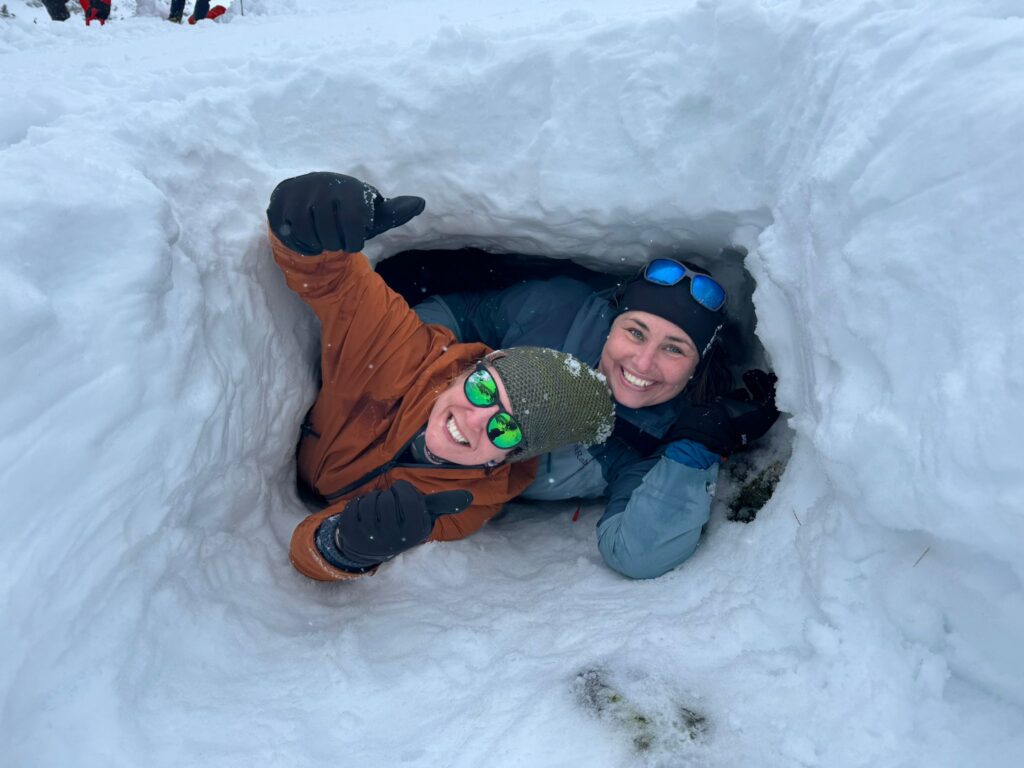Expedition skills courses are an excellent way to develop mountain skills and prepare for an authentic expedition-style trek or climb. Whether you have experience hiking in the Scottish Highlands and are considering taking on a big mountain ascent or you want to build on knowledge acquired during mountain treks in the Alps, an expedition skills course is the best way to do so.
What to look for in an expedition skills course
Experienced educators
The people leading your skills course set the tone and are responsible for imparting valuable experience and expertise. As such, you want to ensure you are learning from the best. First and foremost, ensure the course leaders are fully qualified and trained to the highest standard. All expedition course leaders should at least have an UIMLA qualification, though many will have trained in other areas, too.
While qualifications are essential from a safety and standards perspective, you also want to know that the leaders you will work with are able educators. Contact potential course providers and discuss what their skills courses involve and how they deliver them. It is often much easier to get a feel for how organisations work with course attendees by starting a conversation with the provider. You can also keep an eye out for feedback and testimonials from previous participants.

A supportive environment
Almost all learners benefit from a friendly, supportive and engaging learning environment. Having a drill sergeant of a course leader rush you through a rigorous course syllabus is not the best way to acquire and retain knowledge. Besides, your course is meant to be fun. You are trekking and climbing and preparing for expeditions because these are your passions. They are how you spend your free time – the activities that excite and energise you.
A good course provider will understand all of this and deliver an environment that facilitates an enjoyable learning experience. The course may not always be easy. But you should receive the support you need to progress toward your goals.
An active, immersive experience
At 360 Expeditions, we strongly believe active, first-hand experience is far more effective than passive learning. We want you to learn by doing. To immerse yourself in the expedition experience and to live, breathe and dream the mountain environment for the full duration of the course.
While theory is important, and you need to understand concepts like avalanche hazards, navigation techniques and reading mountain weather, being able to apply abstract understanding is just as critical. Consequently, we would always advise you to look for a course that guarantees active learning and a participatory experience.

Skills development for your ability level
We all have different experience levels and skill sets and start the learning process from a slightly different position. That is ok. An experienced course provider will tailor their approach to ensure all participants are comfortable. However, it is important to choose a course that is relatively well-matched to your ability level.
It is essential to chose a course that covers every aspect (and more) of your future plans and adventure aspirations. 360 ESC course providers will ask you which expedition you aspire too and will assure that every technical aspect of your chosen expedition is covered in the course. Be it learning how to jumar in preparation for a Nepali mountain or correctly understanding how to travel on a glacier before going to Denali, our courses cover it all.
A great location
The course location is crucial for two reasons. First, all course participants want to spend time in a beautiful mountain environment that provides everything you need in terms of physical and technical challenges, comfortable accommodation and interesting local culture. Second, the right location is essential if organisers are to provide participants with a suitable learning environment. We want challenging conditions and a range of mountain features. But we don’t want to take it too far. For instance, developing these skills at extreme altitudes would be impractical and unnecessary. But most importantly, it would be detrimental to the learning experience.
For the 360 Expedition Skills Course, we selected the French Pyrenees as the ideal location. The region surrounding Aneto is the perfect mountain playground in which to hone your skills and gain experience.
How to find the right expedition skills course
Now you understand what to look for in an expeditions skills course, it should be easier to find the right provider. Remember to:
- Talk to course providers and get a feel for the experience they provide.
- Check qualifications and credentials.
- Search for feedback from previous participants.
- Ensure the course syllabus covers the skills you want to develop.

What you can expect on your expedition skills course
The content in expedition skills courses will vary depending on the provider and the mountain abilities they emphasise. However, we can give you an overview of what the 360 course covers. Participants can expect to develop skills in the following areas:
- Snowshoeing
- Safety in the winter environment
- Self-arrest techniques
- Assessing avalanche hazards
- Basic navigation
- Ice-axe and crampon work
- Building snow and ice anchors and belays
- Moving together over snow and ice
- Snow hole construction
- Weather forecasting
- Basic ice climbing techniques
- Expedition nutrition
- Winter camp-craft
The course typically culminates in a mountain summit, should conditions allow.
Expedition skills courses with 360 Expeditions
We designed the 360 Expedition Skills Course to build your confidence, equip you with the skills required to thrive in mountain environments and foster a real passion for alpine adventures. Our team are fully qualified, accredited and experienced mountain educators who know how to get the best out of participants and build an enjoyable and supportive group dynamic that enables all attendees to get the most from the course. To learn more, head to the 360 Expedition Skills Course page or contact the 360 team directly.
